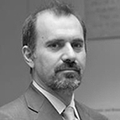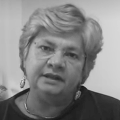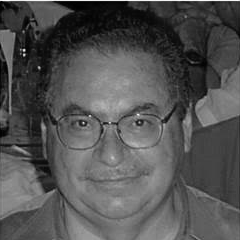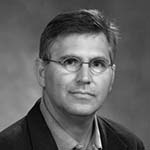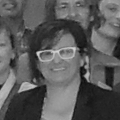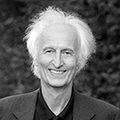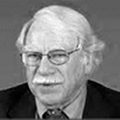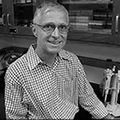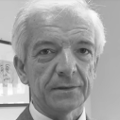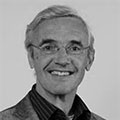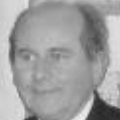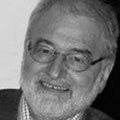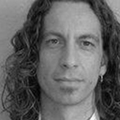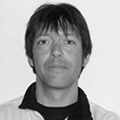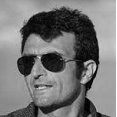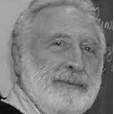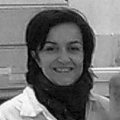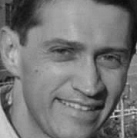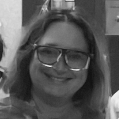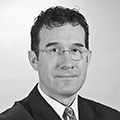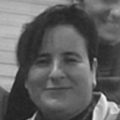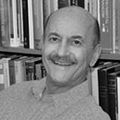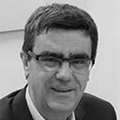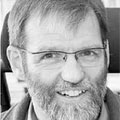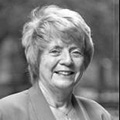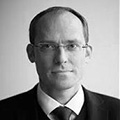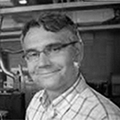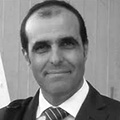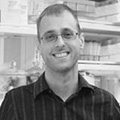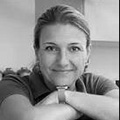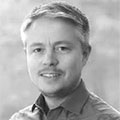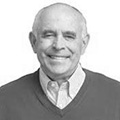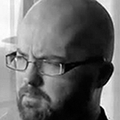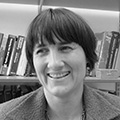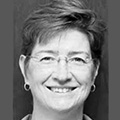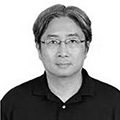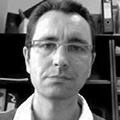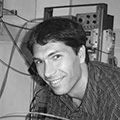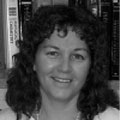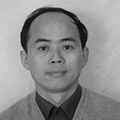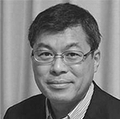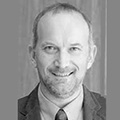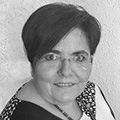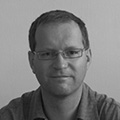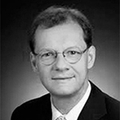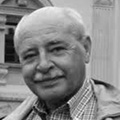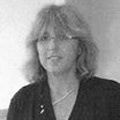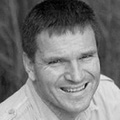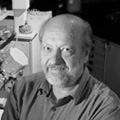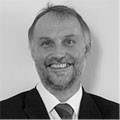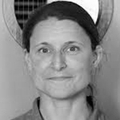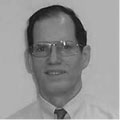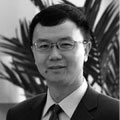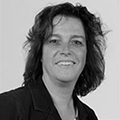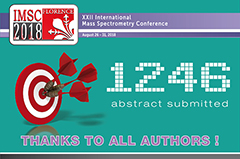
Short Courses
VENUE
University of Florence
Via Gino Capponi, 9
50121 Firenze

Short courses, covering different areas of mass spectrometry (fundamentals, food, MS imaging, newborn screening, etc...), will be given as pre-conference courses on Saturday-Sunday, August 25th-26th. They will provide delegates with the opportunity to update their knowledge on fundamentals and advanced topics in mass spectrometry.
Please find below the list of available courses:
1) FUNDAMENTALS OF MASS SPECTROMETRY (read more...)
Short course outline & topics
A two-day course on the interpretation of mass spectra of organic compounds. Starting at the introductory level, the course is intended to provide the fundamentals for an understanding of the basic principles and applications of mass spectrometry of organic molecules.
Key topics of the short course are ionization processes, the formation and interpretation of isotopic patterns, uses of high-resolution and accurate mass for molecular formula determination, and an introduction to the fragmentation pathways of odd-electron and even-electron ions. Information regarding available mass spectral databases will be provided along with how to use them with all types of organic mass spectrometry including MS/MS data.
With an emphasis on the analysis of small molecules, you will learn to systematically employ all of the above mass spectral data for compound identification and structure elucidation.
To complete the course, a compact lecture on instrumentation and its common modes of operation will be included.
Methodology
Language and Presentation
Tutors
Program & Schedule
2) FOODOMICS & MASS SPECTROMETRY (read more...)
Short course outline & topics
Metabolomics gained progressively the scene of the last decade as the combination of modern analytical techniques with chemometric pattern recognition, targeting also food science and nutrition research and giving at the same time new relevant pathways for food safety, quality and traceability.
Metabolic fingerprinting usually implies a very simple sample preparation (a generic extraction, mainly) to not a priori discriminate potential candidate compounds, otherwise a particular class of molecules (e.g. triglycerides, etc.) can be preselected by adequate sample prep and/or chromatographic separation: in this last case the term used for defining such a strategy is called profiling.
In the particular case of food metabolomics, metabolites can be present in their original form, e.g. fruit or meat, etc... or metabolome can be also influenced by the food processing technologies.
Effectively, the identification of markers usually represents the last step within metabolomics studies with the final aim of discovering metabolite pathway and significant compounds generated for instance during the food processing.
In particular, Foodomics was defined by Cifuentes et al. as "a discipline that studies the food and nutrition domains through the application and integration of advanced -omics technologies to improve consumer's well-being, health, and knowledge": a sort of holistic and comprehensive understanding of 360º food quality.
Many relevant publications on the applicability of high resolution mass spectrometry combined with ultra-high performance liquid chromatography (UHPLC-HRMS) are oriented to food metabolomics.
Recently, direct ambient MS approaches, such as DART-MS and innovative applications of ion mobility spectrometry (IMS), have been proposed as further solutions for fingerprinting-foodomics.
There is also opened a future direction for volatile fingerprinting-foodomics by the exploitation of a new generation of ion sources coupled to GC-HRMS detectors.
Topics:
Methodology
Language and Presentation
Tutors
Program & Schedule
3) MASS SPECTROMETRY IMAGING (read more...)
Short course outline & topics
This short course will be dedicated to the instrumentation employed in MS imaging as well as the theoretical/practical aspects of sample preparation and data analysis.
Methodology
Language and Presentation
Tutors
Program & Schedule
4) EXPANDED NEWBORN SCREENING BY TANDEM MASS SPECTROMETRY (read more...)
Short course outline & topics
Tandem mass spectrometry (MS/MS) has become a leading technology used in clinical chemistry and has shown to be particularly sensitive and specific when used in newborn screening (NBS) tests. The success of tandem mass spectrometry is due to important advances in hardware, software and clinical applications during the last 25 years. MS/MS permits a very rapid measurement of many metabolites in different biological specimens by using filter paper spots or directly on biological fluids. Its use in NBS give us the chance to identify possible treatable metabolic disorders even when asymptomatic and the benefits gained by this type of screening is now recognized worldwide.
Today the use of MS/MS for second-tier tests and confirmatory testing is promising especially in the early detection of new disorders such as some lysosomal storage disorders, ADA and PNP SCIDs, X-adrenoleucodistrophy (X-ALD), Wilson disease, guanidinoacetate methyltransferase deficiency (GAMT), and Duchenne muscular dystrophy. The new challenge for the future will be reducing the false positive rate by using second-tier tests, avoiding false negative results by using new specific biomarkers and introducing new treatable disorders in NBS programs.
Methodology
Language and Presentation
Tutors
Program & Schedule
5) SOLID-PHASE MICROEXTRACTION: COMPREHENSIVE OVERVIEWOF THE TECHNOLOGY AND APPLICATIONS TO ANALYTICAL MASS SPECTROMETRY (read more...)
Short course outline & topics
Sample preparation is an often overlooked but extremely important aspect of any analytical method. Solid-phase microextraction (SPME) is a simple, fast, sensitive, and environmentally-friendly equilibrium/diffusion-based sample preparation technique that allows the integration of sampling and sample preparation steps, as well as direct introduction to the analytical instrument on a single device. Due to these unique features, SPME concept is considered one of the “Greatest Ideas†in analytical chemistry and during the last twenty-five years have proven to be in continuous evolution. This course will cover both basic and advanced SPME topics with the focus on the main principles of SPME including thermodynamic and kinetic theory, calibration methods and coupling strategies of SPME to GC-MS, LC-MS and direct coupling to MS. A complete method development strategy will be described and illustrated in detail by real-life examples to facilitate quantitative determinations. A variety of SPME applications in the fields such as forensic, environmental, food and beverage, industrial hygiene and clinical analysis will be presented. The discussion will include the comparison of the performance of SPME to various established methods relevant for particular application. Recent advances in SPME will be highlighted including (1) direct coupling to mass spectrometry, (2) on-site sampling, (3) the use of SPME for ligand-receptor binding and plasma protein binding studies, (4) the use of SPME to perform in vivo sampling of freely moving animals (e.g. targeted analysis) (5) automation of SPME in 96-well plate format for applications requiring high-throughput (e.g. water/clinical analysis), (6) the use of SPME for direct tissue sampling (clinical applications), (7) in-vivo metabolomics and lipidomics using SPME, (8) brief overview of new technologies: needle trap and thin film microextraction.
The course is targeted at both new and current SPME users. The primary goal of the course is to provide the users of the technique with deeper insight into the main principles of this technique and thus increase their productivity and the quality of analytical results. This course will be of interest to analytical chemists, laboratory supervisors, scientists and industry regulators in the environmental, food and beverage, pharmaceutical, clinical, medical, cosmetic, industrial hygiene and many other fields. The unique features of high throughput, in vivo sampling, and direct coupling to MS will be of particular interest to researchers actively using other sample preparation technologies in combination with mass spectrometry.
Tutors
Program & Schedule

Please CLICK HERE to download the Short Courses Prospectus.
University of Florence
Via Gino Capponi, 9
50121 Firenze

Short courses, covering different areas of mass spectrometry (fundamentals, food, MS imaging, newborn screening, etc...), will be given as pre-conference courses on Saturday-Sunday, August 25th-26th. They will provide delegates with the opportunity to update their knowledge on fundamentals and advanced topics in mass spectrometry.
Please find below the list of available courses:
1) FUNDAMENTALS OF MASS SPECTROMETRY (read more...)
Short course outline & topics
A two-day course on the interpretation of mass spectra of organic compounds. Starting at the introductory level, the course is intended to provide the fundamentals for an understanding of the basic principles and applications of mass spectrometry of organic molecules.
Key topics of the short course are ionization processes, the formation and interpretation of isotopic patterns, uses of high-resolution and accurate mass for molecular formula determination, and an introduction to the fragmentation pathways of odd-electron and even-electron ions. Information regarding available mass spectral databases will be provided along with how to use them with all types of organic mass spectrometry including MS/MS data.
With an emphasis on the analysis of small molecules, you will learn to systematically employ all of the above mass spectral data for compound identification and structure elucidation.
To complete the course, a compact lecture on instrumentation and its common modes of operation will be included.
Methodology
- Lectures
- Take-home exercises and solutions via WWW
Language and Presentation
- English
- Slides
Tutors
 |
O. DAVID SPARKMAN
"University of the Pacific in Stockton, California (USA)" |
 |
JÜRGEN H. GROSS
"University of Heidelberg (D)" |
Program & Schedule
| SATURDAY, AUGUST 25, 2018 | |||
| TIME | TOPIC | TUTOR | ROOM |
| 2.00 pm | Introduction of speakers | Gross, Sparkman | Room 4 |
| 2.15 pm | Principle of MS, ion formation, ion internal energy, time scale of MS | Gross | Room 4 |
| 3.30 pm | Fragmentation of organic ions I | Sparkman | Room 4 |
| 4.30 pm | Coffee Break | ||
| 5.00 pm | Isotopic patterns, isotopic mass, molecular formulas from accurate mass | Gross | Room 4 |
| 6.00 pm | End of day 1 | ||
| SUNDAY, AUGUST 26, 2018 | |||
| TIME | TOPIC | TUTOR | ROOM |
| 9.00 am | Fragmentation of organic ions II | Sparkman | Room 4 |
| 10.00 am | Instrumentation and tandem MS | Gross | Room 4 |
| 11.00 am | Coffee Break | ||
| 11.30 am | Fragmentation of organic ions III | Sparkman | Room 4 |
| 1.00 pm | End of short course. Certificates | Sparkman, Gross | Room 4 |
2) FOODOMICS & MASS SPECTROMETRY (read more...)
Short course outline & topics
Metabolomics gained progressively the scene of the last decade as the combination of modern analytical techniques with chemometric pattern recognition, targeting also food science and nutrition research and giving at the same time new relevant pathways for food safety, quality and traceability.
Metabolic fingerprinting usually implies a very simple sample preparation (a generic extraction, mainly) to not a priori discriminate potential candidate compounds, otherwise a particular class of molecules (e.g. triglycerides, etc.) can be preselected by adequate sample prep and/or chromatographic separation: in this last case the term used for defining such a strategy is called profiling.
In the particular case of food metabolomics, metabolites can be present in their original form, e.g. fruit or meat, etc... or metabolome can be also influenced by the food processing technologies.
Effectively, the identification of markers usually represents the last step within metabolomics studies with the final aim of discovering metabolite pathway and significant compounds generated for instance during the food processing.
In particular, Foodomics was defined by Cifuentes et al. as "a discipline that studies the food and nutrition domains through the application and integration of advanced -omics technologies to improve consumer's well-being, health, and knowledge": a sort of holistic and comprehensive understanding of 360º food quality.
Many relevant publications on the applicability of high resolution mass spectrometry combined with ultra-high performance liquid chromatography (UHPLC-HRMS) are oriented to food metabolomics.
Recently, direct ambient MS approaches, such as DART-MS and innovative applications of ion mobility spectrometry (IMS), have been proposed as further solutions for fingerprinting-foodomics.
There is also opened a future direction for volatile fingerprinting-foodomics by the exploitation of a new generation of ion sources coupled to GC-HRMS detectors.
Topics:
- Introduction to MS, Food processing & Foodomics
- Foodomics in many different ways: genomics, proteomics, metallomics, sensomics, isotopolomics
- Metabolomics studies for food nutrition and safety
- Ambient Mass Spectrometry for Foodomics outcomes
- Food quality and traceability following the metabolomics way
- Exercise with real case studies/examples working time together among teachers & students
Methodology
- Lectures
Language and Presentation
- English
- Slides
Tutors
 |
MICHELE SUMAN
"Barilla G.R. F.lli SpA, Parma (Italy)" |
 |
LAURENT DEBRAUWER
"INRA Toxalim, Toulouse (France)" |
 |
FULVIO MATTIVI
"University of Trento, Trento (Italy)" |
 |
LAURA RIGHETTI
"University of Parma, Parma (Italy)" |
Program & Schedule
| SATURDAY, AUGUST 25, 2018 | |||
| TIME | TOPIC | TUTOR | ROOM |
| 2.00 pm | Introduction to MS, Food processing & Foodomics | Suman | Room 9 |
| 3.30 pm | Metabolomics/FoodOmics approaches by MS & NMR; MS instrumentation (ionization sources, analyzers) vs metabolomics: pros and cons | Debrauwer | Room 9 |
| 4.30 pm | A focus on metabolomics approaches applied on Human for food contaminant exposure assessment.
Exercises: case studies/spectra interpretations. |
Debrauwer | Room 9 |
| 5.00 pm | Coffee Break | ||
| 6.00 pm | End of day 1 | ||
| SUNDAY, AUGUST 26, 2018 | |||
| TIME | TOPIC | TUTOR | ROOM |
| 9.00 am | Nutritional Metabolomics: an Intro Application of MS-based metabolomics to investigate the host: microbiome co-metabolic processing of apple polyphenols.
Exercises: case studies/spectra interpretations. |
Mattivi | Room 9 |
| 11.00 am | Coffee Break | ||
| 11.30 am | Metabolomics for food safety.
Exercises: case studies/spectra interpretations. |
Righetti | Room 9 |
| 1.00 pm | End of short course. Certificates | Room 9 | |
3) MASS SPECTROMETRY IMAGING (read more...)
Short course outline & topics
This short course will be dedicated to the instrumentation employed in MS imaging as well as the theoretical/practical aspects of sample preparation and data analysis.
Methodology
- Lectures
Language and Presentation
- English
- Slides
Tutors
 |
MARIALAURA DILILLO
"Fondazione Pisana per la Scienza, Pisa (Italy)" |
 |
MANUEL GALLI
"Università Milano Bicocca, Monza (Italy)" |
 |
LIAM MCDONNELL
"Fondazione Pisana per la Scienza, Pisa (Italy)" |
 |
ANDREW SMITH
"Università Milano Bicocca, Monza (Italy)" |
 |
MARTINA MARCHETTI-DESCHMANN
"University of Technology, Wien (Austria)" |
Program & Schedule
| SATURDAY, AUGUST 25, 2018 | |||
| TIME | TOPIC | TUTOR | ROOM |
| 2.00 pm | Introduction to MS-Imaging: historical overview | McDonnel | Room 5 |
| 3.00 pm | Sample preparation workflow for the analysis of fresh-frozen and formalin-fixed paraffin-embedded tissue: from sample procurement to matrix deposition | Smith | Room 5 |
| 4.30 pm | Coffee Break | ||
| 5.00 pm | MSI analysis (capabilities and limitations of instrumentation) | McDonnel | Room 5 |
| 6.00 pm | End of day 1 | ||
| SUNDAY, AUGUST 26, 2018 | |||
| TIME | TOPIC | TUTOR | ROOM |
| 9.00 am | Identification, validation and increased coverage: MSI combined with microproteomics | Dilillo | Room 5 |
| 10.00 am | Processing and interpretation of the acquired data: typical data elaboration workflow, from the generation of molecular images to the correlation of unsupervised and supervised statistical analyses with histology | Galli | Room 5 |
| 11.00 am | Coffee Break | ||
| 11.30 am | Applications and latest trends in MSI | Marchetti-Deschmann | Room 5 |
| 1.00 pm | End of short course. Certificates | Room 5 | |
4) EXPANDED NEWBORN SCREENING BY TANDEM MASS SPECTROMETRY (read more...)
Short course outline & topics
Tandem mass spectrometry (MS/MS) has become a leading technology used in clinical chemistry and has shown to be particularly sensitive and specific when used in newborn screening (NBS) tests. The success of tandem mass spectrometry is due to important advances in hardware, software and clinical applications during the last 25 years. MS/MS permits a very rapid measurement of many metabolites in different biological specimens by using filter paper spots or directly on biological fluids. Its use in NBS give us the chance to identify possible treatable metabolic disorders even when asymptomatic and the benefits gained by this type of screening is now recognized worldwide.
Today the use of MS/MS for second-tier tests and confirmatory testing is promising especially in the early detection of new disorders such as some lysosomal storage disorders, ADA and PNP SCIDs, X-adrenoleucodistrophy (X-ALD), Wilson disease, guanidinoacetate methyltransferase deficiency (GAMT), and Duchenne muscular dystrophy. The new challenge for the future will be reducing the false positive rate by using second-tier tests, avoiding false negative results by using new specific biomarkers and introducing new treatable disorders in NBS programs.
Methodology
- Lectures
Language and Presentation
- English
- Slides
Tutors
 |
GIANCARLO LA MARCA
"University of Florence and Meyer Children's Hospital, Florence (Italy)" |
 |
MARZIA PASQUALI
"University of Utah, School of Medicine, Salt Lake City (USA)" |
 |
UGO ROCHA
"National Institute of Health “Ricardo Jorgeâ€, Porto (Portugal)" |
Program & Schedule
| SATURDAY, AUGUST 25, 2018 | |||
| TIME | TOPIC | TUTOR | ROOM |
| 2.00 pm | Introduction to the expanded newborn screening | Pasquali | Room 3 |
| Preanalytical phase. Sample collection | Rocha | Room 3 | |
| Instrumentation and methods | Rocha | Room 3 | |
| 4.30 pm | Coffee Break | ||
| 5.00 pm | Classes of compounds to be analyzed Second Tier tests |
Rocha, La Marca | Room 3 |
| 6.00 pm | End of day 1 | ||
| SUNDAY, AUGUST 26, 2018 | |||
| TIME | TOPIC | TUTOR | ROOM |
| 9.00 am | Organic acidurias, aminoacidopathies, beta-oxidation of fatty acids defects, Medium-chain Acyl CoA dehydrogenase deficiency | Pasquali | Room 3 |
| Interpretation of the results | Pasquali, Rocha | Room 3 | |
| 11.00 am | Coffee Break | ||
| 11.30 am | Newborn screening for lysosomal storage disorders | La Marca | Room 3 |
| Future Perspectives | La Marca | Room 3 | |
| 1.00 pm | End of short course. Certificates | ||
5) SOLID-PHASE MICROEXTRACTION: COMPREHENSIVE OVERVIEWOF THE TECHNOLOGY AND APPLICATIONS TO ANALYTICAL MASS SPECTROMETRY (read more...)
Short course outline & topics
Sample preparation is an often overlooked but extremely important aspect of any analytical method. Solid-phase microextraction (SPME) is a simple, fast, sensitive, and environmentally-friendly equilibrium/diffusion-based sample preparation technique that allows the integration of sampling and sample preparation steps, as well as direct introduction to the analytical instrument on a single device. Due to these unique features, SPME concept is considered one of the “Greatest Ideas†in analytical chemistry and during the last twenty-five years have proven to be in continuous evolution. This course will cover both basic and advanced SPME topics with the focus on the main principles of SPME including thermodynamic and kinetic theory, calibration methods and coupling strategies of SPME to GC-MS, LC-MS and direct coupling to MS. A complete method development strategy will be described and illustrated in detail by real-life examples to facilitate quantitative determinations. A variety of SPME applications in the fields such as forensic, environmental, food and beverage, industrial hygiene and clinical analysis will be presented. The discussion will include the comparison of the performance of SPME to various established methods relevant for particular application. Recent advances in SPME will be highlighted including (1) direct coupling to mass spectrometry, (2) on-site sampling, (3) the use of SPME for ligand-receptor binding and plasma protein binding studies, (4) the use of SPME to perform in vivo sampling of freely moving animals (e.g. targeted analysis) (5) automation of SPME in 96-well plate format for applications requiring high-throughput (e.g. water/clinical analysis), (6) the use of SPME for direct tissue sampling (clinical applications), (7) in-vivo metabolomics and lipidomics using SPME, (8) brief overview of new technologies: needle trap and thin film microextraction.
The course is targeted at both new and current SPME users. The primary goal of the course is to provide the users of the technique with deeper insight into the main principles of this technique and thus increase their productivity and the quality of analytical results. This course will be of interest to analytical chemists, laboratory supervisors, scientists and industry regulators in the environmental, food and beverage, pharmaceutical, clinical, medical, cosmetic, industrial hygiene and many other fields. The unique features of high throughput, in vivo sampling, and direct coupling to MS will be of particular interest to researchers actively using other sample preparation technologies in combination with mass spectrometry.
Tutors
 |
Janusz Pawliszyn
"University of Waterloo (CDN)" |
 |
Barbara Bojko
"Nicolaus Copernicus University of Torun (PL)" |
 |
Nikita Looby
"University of Waterloo (CDN)" |
 |
Tijana Vasiljevic
"University of Waterloo (CDN)" |
Program & Schedule
| SATURDAY, AUGUST 25, 2018 | |||
| TIME | TOPIC | TUTOR | ROOM |
| 2.00 pm | Fundamentals of SPME | Pawliszyn | Room 7 |
| 4.00 pm | Interfaces of SPME to Analytical Instrumentation | Pawliszyn | Room 7 |
| 4.30 pm | Coffee Break | ||
| 5.00 pm | SPME Method Development | Looby | Room 7 |
| 6.00 pm | End of day 1 | ||
| SUNDAY, AUGUST 26, 2018 | |||
| TIME | TOPIC | TUTOR | ROOM |
| 9.00 am | Direct Coupling of SPME to MS for Complex Sample Screening | Vasiljevic | Room 7 |
| 10.00 am | Automation in SPME | Looby | Room 7 |
| 11.00 am | Coffee Break | ||
| 11.30 am | Pharmaceutical and Biomedical Applications of SPME | Bojko | Room 7 |
| 12.30 am | Environmental and Food Applications of SPME | Pawliszyn | Room 7 |
| 1.00 pm | End of short course. Certificates | Room 7 | |

Please CLICK HERE to download the Short Courses Prospectus.
| REGISTRATION FEES | |
| Delegate | € 250,00 |
| Student | € 150,00 |
